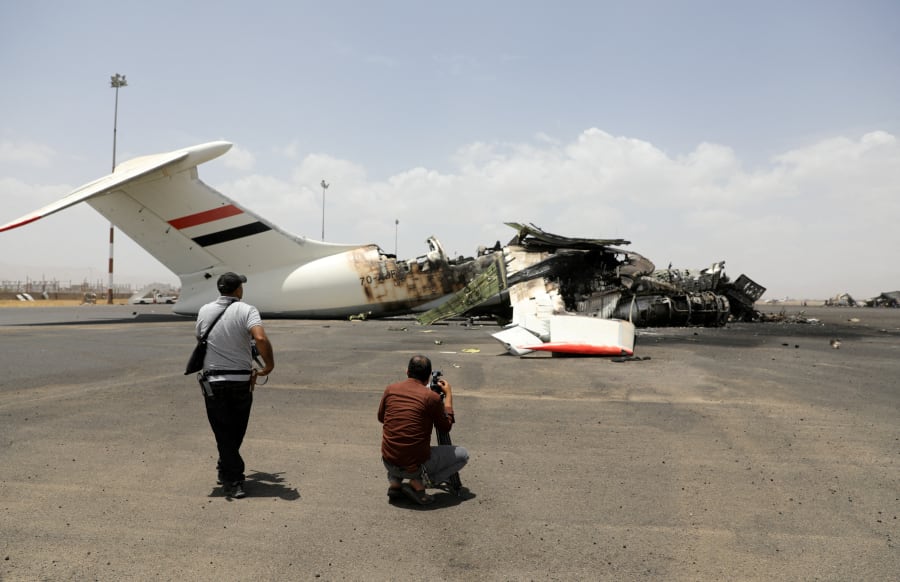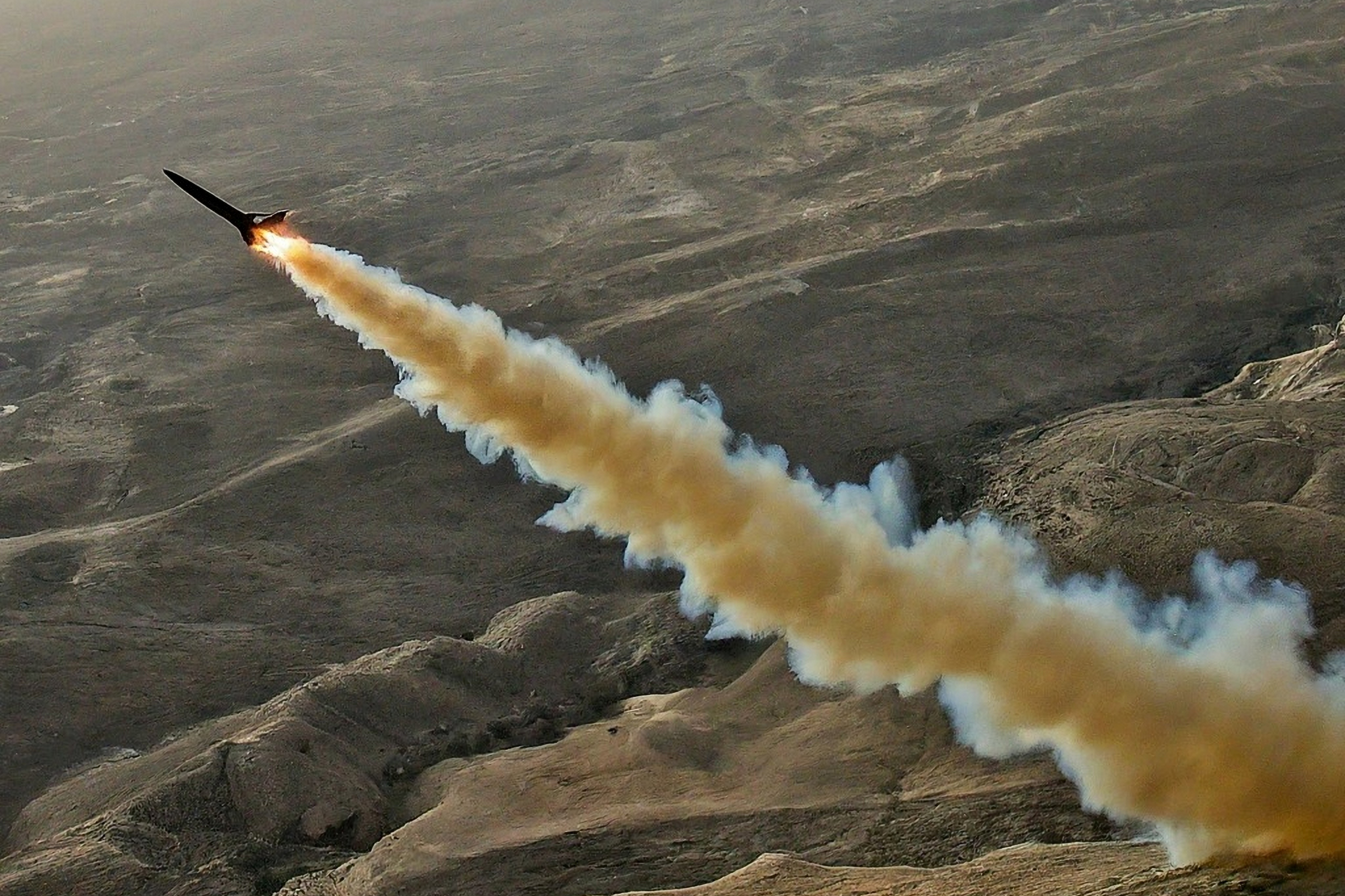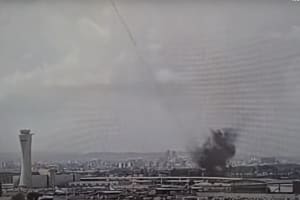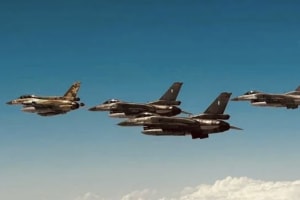Despite damage exceeding $1 billion from US and Israeli strikes, Houthi missile attacks on Israel persist

The Iranian-backed Yemen-based Houthi terrorist militia has continued firing missiles at Israel despite suffering significant financial losses from combined U.S. and Israeli aerial strikes. Houthi officials announced at a press conference on Sunday that the militia has suffered damages exceeding $1 billion as a result of American and Israeli aerial strikes in the past 10 months.
The Israeli Air Force has reportedly severely damaged the Houthi-held Hodeidah, As-Salif and Ras Isa ports as well as the Houthi-controlled Sanaa airport outside the Yemeni capital Sanaa. These port and airport facilities are critical for the transfer of Iranian arms to its Houthi terrorist proxy.
However, the significant financial losses have not deterred the Houthis from continuing the ongoing attacks on Israel. The Houthis announced at the press conference that it "continued to operate, receive ships, and ensure the flow of essential goods to millions of Yemenis."
Mohammad Qahim who serves as the Houthi Minister of Transportation, warned Israel at the conference:
"The strikes will not change our steadfast stance toward the Palestinian people and our support for the resistance until the attacks stop and the Gaza blockade is lifted."

The Houthis claim that their unprovoked attacks are carried out in solidarity with Gaza and Hamas, which launched the war with its Oct. 7, 2023, massacre of 1,200 Israelis and kidnapping of 251 people into Gaza.
Israeli aerial defenses successfully intercepted two Houthi missiles that were fired on Israel on Tuesday morning. The Houthis who openly call for Israel’s destruction, have fired hundreds of missiles and drones against Israel since the Hamas Oct. 7 attack. Furthermore, the Houthis have reportedly fired 40 ballistic missiles since Israel resumed its military offensive against Hamas in Gaza in March.
While Israel has successfully degraded much of Hamas' and Hezbollah's military capabilities, the Houthi threat has proven more challenging due to the considerable geographic distance – over 2,000 kilometers (1,300 miles) – between Israel and Yemen.
In a report published by the Saudi-owned and London-based news outlet Asharq Al-Awsat, the Yemeni researcher Fares Al-Bil argued that Israel faces a "lack of accurate intelligence regarding the Houthis, their weapons, and leadership, making precise strikes difficult."
The political analyst Mahmoud al-Taher went even further. "Israeli responses do not harm the organization but instead provide it with political and media momentum," he claimed, despite the admission from the Houthis that they had suffered financial losses exceeding one billion dollars.
Danny Citrinowicz, a veteran research fellow in the Iran Program at the Institute for National Security Studies (INSS) in Tel Aviv, explained why the Israeli airstrikes cause more limited damage compared to the previous U.S. strikes on the Houthis.
"The U.S. had a significant advantage in proximity to the theater and the ability to act based on precise intelligence. For Israel, even if you have intelligence, you lack continuous presence in the arena. You are reliant on an air force that can strike Yemen, but certainly not daily. This forces you to target classic infrastructure sites, causing economic damage but failing to create a sense of vulnerability among the leadership. It also does not disrupt mobile launchers or stop rocket fire into Israel. That is why, at present, without continuous pressure, they are able to launch more rockets toward Israel," he assessed.
Looking ahead, Citrinowicz predicted that "Israeli activity, while inflicting economic damage, does not harm Houthi leadership or their missile-launching capabilities.”
“Even if we bomb Hodeidah another 100 times, it won’t help. Their strength lies in their weakness – they have no 'center of gravity' for Israel to target that would compel them to stop their attacks,” he added.
Citronowicz concluded by emphasizing that "the Houthi threat will not disappear even if there is a ceasefire in Gaza. There is a need for cooperation with the U.S., Gulf states, and southern Yemeni militias, with the ultimate goal of overthrowing the Houthi regime. At this point, that seems impossible, and halting their rocket fire will only occur through reaching an agreement in Gaza,” he assessed.
On Wednesday morning, the Israeli Air Force (IAF) attacked the Houthi-controlled Sanaa airport without any prior warning.
Israeli Defense Minister Israel Katz confirmed that Israeli fighter jets had struck the Houthi-controlled target.
"Air Force planes have now attacked terrorist targets of the Houthi terrorist organization at the airport in Sanaa and destroyed the last remaining plane used by the Houthis," Katz announced.
"This is a clear message and a direct continuation of the policy we have established: whoever fires at the State of Israel will pay heavy prices. The ports in Yemen will continue to be severely damaged, and the airport in Sanaa will be destroyed again and again, as will other strategic infrastructure used by the Houthi terrorist organization and its supporters. The Houthi terrorist organization will be under naval and air blockade – as we pledged and warned. Whoever harms us will be harmed sevenfold," the defense minister warned.
Israeli Prime Minister Benjamin Netanyahu also confirmed that “The Air Force has attacked the airport in Sanaa again, which is controlled by the Houthi terrorist regime in Yemen".
Netanyahu warned that Israel would continue extracting a heavy price for the Houthi aggression against Israel. He concluded by warning the Houthi’s patron, the Islamic Republic of Iran.
“The Houthis are only the symptom. The main driving force behind them is Iran, which is responsible for the aggression emanating from Yemen,” Netanyahu stated.

The All Israel News Staff is a team of journalists in Israel.
You might also like to read this:
















